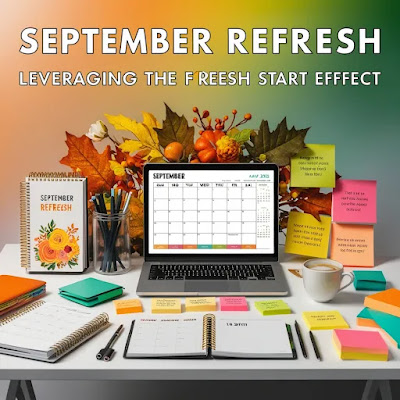Productivity and Mental Health: Finding Balance in 2024
Productivity and Mental Health: Finding Balance in 2024
Introduction
In 2024, the pursuit of productivity has become a central theme in both personal and professional life. However, as the drive to achieve more intensifies, so does the risk of compromising mental health. The question many are grappling with is: How can we maintain high levels of productivity without sacrificing our mental well-being?
The answer lies in understanding the intricate connection between productivity and mental health and implementing strategies that allow us to excel in our tasks while preserving our peace of mind. This article will guide you through key practices to achieve this balance, ensuring that your drive for productivity enhances rather than hinders your mental health.
Understand the Connection Between Productivity and Mental Health
The Interconnectedness of Productivity and Mental Health
Productivity and mental health are deeply intertwined. On one hand, achieving goals and completing tasks can lead to a sense of accomplishment and boost mental well-being. On the other hand, excessive pressure to perform and unrealistic expectations can lead to stress, burnout, and a decline in mental health.
When mental health suffers, productivity inevitably declines. Issues such as anxiety, depression, and chronic stress can impair cognitive function, reduce focus, and sap energy, making it difficult to perform at your best. This creates a vicious cycle where decreased productivity leads to increased stress and further deterioration of mental health.
Balancing productivity with mental health allows for sustained performance and well-being. By acknowledging the connection between the two, individuals can develop strategies that not only enhance productivity but also protect and promote mental health.
Set Realistic Goals
The Importance of Realistic Goal-Setting
Setting realistic goals is crucial for maintaining a balance between productivity and mental health. Overly ambitious goals can lead to feelings of inadequacy and failure when they are not achieved, which can negatively impact mental well-being.
The SMART (Specific, Measurable, Achievable, Relevant, Time-bound) framework is an effective way to set realistic goals that contribute to both productivity and mental health. By ensuring that your goals are attainable and relevant, you reduce the risk of overwhelming yourself and increase the likelihood of success.
To avoid burnout, It's important that your goals are aligned. with your personal and professional values. When your goals reflect what truly matters to you, you are more likely to feel motivated and fulfilled, rather than stressed and overburdened.
Incorporate Breaks and Downtime
The Necessity of Breaks for Mental Health
Incorporating regular breaks into your routine is essential for maintaining mental health and sustaining productivity. Continuous work without breaks can lead to mental fatigue, reduced concentration, and burnout.
One effective method for incorporating breaks is the Pomodoro Technique. This technique involves working for 25 minutes, followed by a 5-minute break. After four cycles, take a longer break of 15-30 minutes. This structured approach helps maintain focus while ensuring you get the necessary rest to recharge.
Downtime isn't just about resting; it also plays a critical role in creativity and problem-solving. Allowing your mind to wander during breaks can lead to new insights and solutions that you might not have discovered during intense work periods.
Practice Mindfulness and Meditation
The Role of Mindfulness in Productivity and Mental Health
Mindfulness involves being fully present in the moment, aware of your thoughts and feelings without judgment. Practicing mindfulness can significantly enhance productivity by improving focus, reducing stress, and fostering a sense of calm.
Meditation is a powerful practice that can enhance mental clarity and focus, making it easier to manage tasks and challenges. Regular meditation has been shown to reduce stress, improve concentration, and boost overall mental well-being.
Incorporating mindfulness into your daily routine doesn't have to be complicated. Simple practices like mindful breathing, short meditation sessions, or even mindful walking can make a significant difference in how you approach your work and manage stress.
Prioritize Sleep and Nutrition
The Foundation of Productivity: Sleep
Sleep is the foundation of both productivity and mental health. Lack of sleep can impair cognitive function, reduce concentration, and lead to mood swings, all of which negatively impact productivity.
Just as important as sleep, proper nutrition fuels your body and brain, providing the energy needed to perform effectively. A balanced diet rich in whole foods, such as fruits, vegetables, lean proteins, and whole grains, supports cognitive function and mental well-being.
To optimize your productivity and mental health, develop healthy sleep and nutrition habits. Aim for 7-9 hours of quality sleep each night and maintain a diet that supports sustained energy levels throughout the day. Avoid excessive caffeine and sugar, as they can lead to energy crashes and affect your mood.
Seek Support When Needed
Recognizing When to Seek Help
It's important to recognize when your mental health is at risk and to seek support when needed. Ignoring signs of stress, anxiety, or burnout can lead to more serious mental health issues and further decline in productivity.
Professional support, such as therapy or counseling, can provide valuable tools and strategies for managing stress and improving mental health. Many organizations also offer Employee Assistance Programs (EAPs) that provide confidential counseling and support for mental health issues.
In addition to professional help, building a supportive network of friends, family, and colleagues can provide emotional support and practical advice. Surrounding yourself with people who understand and support your goals can make a significant difference in your ability to balance productivity with mental health.
Conclusion
Balancing productivity with mental health is crucial for long-term success and well-being. By understanding the connection between the two, setting realistic goals, incorporating breaks and downtime, practicing mindfulness and meditation, prioritizing sleep and nutrition, and seeking support when needed, you can enhance your productivity without compromising your mental health.
In 2024, as the pace of life continues to accelerate, it's more important than ever to adopt strategies that support both productivity and mental well-being. By integrating these practices into your daily routine, you can achieve your goals while maintaining a healthy and balanced life.
F.A.Q
How can I improve my productivity without sacrificing my mental health?
Improving productivity without sacrificing mental health involves setting realistic goals, incorporating regular breaks, practicing mindfulness, and prioritizing sleep and nutrition. It's also important to seek support when needed and maintain a healthy work-life balance.
What are some mindfulness exercises I can practice at work?
Simple mindfulness exercises for the workplace include mindful breathing, short meditation sessions, and mindful walking. These practices help improve focus, reduce stress, and enhance overall mental well-being.
How can I avoid burnout while trying to stay productive?
Avoiding burnout involves setting achievable goals, taking regular breaks, practicing mindfulness, and prioritizing self-care, including adequate sleep and proper nutrition. It's also important to recognize the signs of burnout early and seek support if needed.
What role does sleep play in balancing productivity and mental health?
Sleep is essential for cognitive function, mood regulation, and overall mental health. Prioritizing 7-9 hours of quality sleep each night helps maintain focus, energy, and productivity, while also supporting mental well-being.
Why is it important to set realistic goals for productivity?
Setting realistic goals is important because it helps prevent feelings of overwhelm and failure. Achievable goals increase motivation and satisfaction, which contributes to both productivity and mental health.
When should I seek professional help for my mental health?
You should seek professional help when you notice persistent symptoms of stress, anxiety, depression, or burnout that are affecting your ability to function in daily life. Early intervention can prevent more serious mental health issues and support better productivity.
By following the tips and strategies outlined in this article, you can find a balance between productivity and mental health, ensuring that you achieve your goals without compromising your well-being. Visit www.elevateaura.net for more insights and resources on mental well-being and productivity in 2024.






